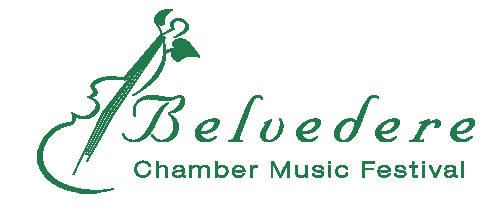
History - Performers - Videos - Composition Contest
| Concert 3 - June 19, 2020, 3:00 p.m. | Program Notes Festival Booklet (pdf) |
| Reynaldo Hahn: Le Rossignol eperdu: L’Ange verrier Adam Bowles, piano Reynaldo Hahn (1874-1947) was born in Venezuela but his family moved to Paris when he was three. He was a child prodigy who entered the Paris Conservatory at age ten and later became a champion of French art song. He also wrote a set of 53 “poems for piano” published in a set titled Le Rossignol Éperdu (The Distraught Nightingale). The pieces range from 30 seconds to eight minutes and draw inspiration from literary and artistic images. |
|
| Raymond VunKannon: Music to Hear text from Shakespeare: Sonnet 8 Sabrina Laney Warren, soprano Perry Mears, piano Raymond VunKannon is from Memphis, TN where several of his family were professionally active in music. He attended Yale University and received B.A., B.Music, and M.Music degrees. He spent three years as assistant director of the Yale Band. From 1958-96 he taught at Hofstra University, retiring as Emeritus Professor of Music |
|
| Ed Robertson: Changing Landscapes Adam Bowles, piano Ed Robertson is Professor Emeritus of Music at the University of Montevallo, where he was Professor of Music and Coordinator of Music Theory and Composition. At the University of Montevallo he established the UM Music Technology Lab. He earned his Doctor of Music at Florida State University, where he was a student of John Boda. He has also studied with Thea Musgrave, David Davis, and Jack Jarrett. Prior to his graduate work at Florida State University, he served as Director of Choral Activities at the University of Richmond. |
|
| Lili Boulanger: Nocturne Gregory Maytan, violin Maeve Brophy, piano Lili Boulanger (1893-1918) was the first woman composer to win the prestigious Prix de Rome in 1912. Her influences were Massenet, Fauré, and Debussy, but her experiments in harmony and instrumental color went beyond her models. She was often ill throughout her short life and was survived by her sister Nadia Boulanger (1887-1979), a composer and conductor who taught many leading American composers, including Leonard Bernstein, Elliott Carter, Aaron Copland, Roy Harris, Walter Piston, and Virgil Thompson. All three short pieces in this set are written for either violin or flute and piano, and Boulanger wrote versions of D’un Matin de printemps (“Of a spring morning”) for orchestra and piano trio. D’un Matin de printemps changes mood quickly, while the Nocturne is exquisite and restrained, and the Cortčge (“Procession”) is joyous.––Leonard Garrison |
|
| Ernest Bloch: Cello Suite No. 1 Alisa Horn, cello III. Canzona, IV. Allegro Ernest Bloch was a Swiss-born American composer. Bloch was a preeminent artist in his day, and left a lasting legacy. He is recognized as one of the greatest Swiss composers in history. As well as producing musical scores, Bloch had an academic career that culminated in his recognition as Professor Emeritus at the University of California, Berkeley in 1952. Many of his works - as can be seen from their Hebrew-inspired titles - also draw heavily on his Jewish heritage. Bloch's father had at one stage intended to become a rabbi, and the young Ernest had a strong religious upbringing; as an adult he felt that to write music that expressed his Jewish identity was "the only way in which I can produce music of vitality and significance". |
|
| Poulenc: Sonata for Clarinet and Bassoon Nobuko Igarashi, clarinet Susanna Whitney, bassoon This sonata is the third work of chamber music of Francis Poulenc after the sonata for two clarinets and the sonata for piano, 4 hands. It was written between August and October 1922 at the same time as the Sonata for horn, trumpet and trombone. It was premiered by the clarinettist Louis Cahuzac at the Théâtre des Champs-Élysées in Paris on 4 January 1923 at a Satie-Poulenc concert organized by Jean Wiener. |
|
| Manuel de Falla: Canciones Populaires (1914) Daniel Gilbert, violin Brian Ray, piano Manuel de Falla composed Seven Popular Spanish Songs at the request of soprano Luisa Vela who was starring in his opera La Vida Breve. They were written in 1914 near the time he retreated to Spain in the face of the German invasion of France. The idiom of the piano accompaniments that Falla devised for these was, according to the composer’s biographer Suzanne Demarquez, derived from “the natural resonance...and modal nature of each song, without in any way neglecting the grace, the sensitivity, the delicate style of his pianistic inspiration.” In 1925, six of the seven songs were arranged for violin and piano as the Suite Populaire Espagnole by Paul Kochánski (1887–1934), the noted Polish violinist and Juilliard faculty member. |